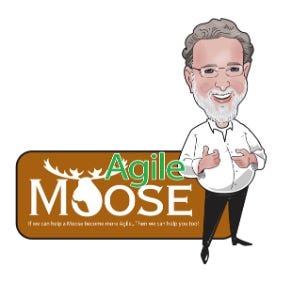Lifting Each Other Up
I just saw a post about an Agile Coach losing their job. In the same stream, I saw another post about a coach offering services to clients disrupted by job losses.
Then an idea struck me…
If you’re an Agile Coach or Scrum Master out of work, one challenge is keeping your skills sharp and your morale up.
But here’s the aha…
What if you offered to coach others during this time for free? Couching it as mentoring, sounding board, coaching, and advising.
What’s in it for them? Help when they most need it.
What’s in it for you? Sharpening your saw and having stories to share in your interviews.
But to make this happen, we need a clearing house of sorts. A place where matches can take place. Where might that be?
We need coaches, but also people who are willing to ask for help.
Join us in the Moose Herd and our Slack channel to establish these relationships. There is no better time than NOW to help one another.
https://www.agile-moose.com/moose-herd
Stay agile and helpful, my friends,
Bob.
Whatever your role or experience, life in the agile space can be challenging today. Having someone to serve as your coach, as a sounding board, be a truthteller, and become a trusted partner on tap to leverage during those tricky bits can be helpful. That’s precisely where Agile Moose can help you.
We’re not just an Agile Coach, but a business domain expert, a personal advisor, an organizational design and development consultant, and a leadership coach and partner.
The moose brings over 35 years of technical and product leadership experience across a broad range of contexts. If you’re stuck and know it, reach out, as I can help.




Bob - 100% agree that Coaches should be helping Coaches during transitional times, and offering your expertise for free is a valuable contribution.
One thing that I wish you had addressed in your article is the "Coaches in Name Only" among us who likely deserved to be removed from their roles. Without professional licensing and shrinkage in the overall industry, it's healthy from a macro perspective for these, even well-meaning, people to be exited. After all, you need a license to cut someone's hair professionally, but you only need to pass an interview to coach a multi-billion-dollar organization through an adoption or transformation.
You could make a strong argument that it could very easily become a drain on coaches who attempt to help someone who hasn't invested the time and discipline in their own coaching career. It's a difficult needle to thread, especially for those who make their living coaching and should be compensated for their time and expertise.
How do you determine where to invest your resources?
I agree with doing both formal and informal volunteer work, but I've also learned to be prudent about it. It may be sardonic, but there is still truth in the adage, "no good deed goes unpunished" in some circumstances.